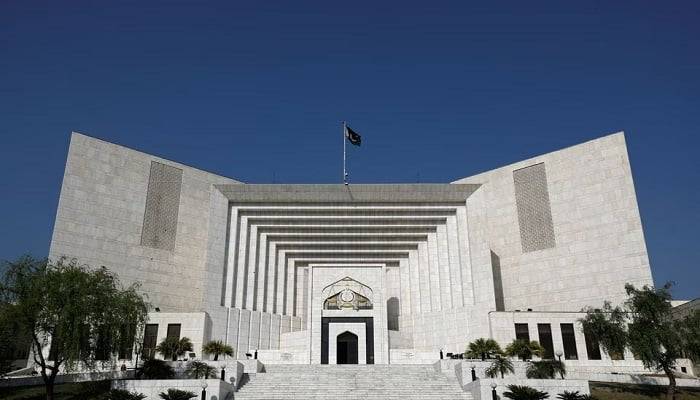Islamabad (Web Desk): Chief Justice of Pakistan (CJP) Qazi Faez Isa on Wednesday summoned a full court meeting of the Suprem Court (SC) judges to deliberate upon a letter written by the six Islamabad High Court (IHC) judges about the alleged interference of members of the executive, including operatives of intelligence agencies, in judicial affairs.
According to reports, the meeting of the top court judges headed by the CJP lasted for over two hours in the federal capital.
The development took place after the bar associations and legal experts called for a probe into the letter.
The sources claimed the Attorney General for Pakistan (AGP) Mansoor Usman Awan met the CJP and discussed the matter.
After the meeting, AGP, while talking to journalists, said that the matter is serious and it should be probed.
Bar associations of Sindh, Lahore, Islamabad and Khyber Pakhtunkhwa (KP) as well as senior lawyers condemned the alleged interference, urging the top judge to look into the matter.
In a letter writer on Tuesday, addressed to SJC members — Chief Justice of Pakistan (CJP) Qazi Faez Isa, Supreme Court Justices Mansoor Ali Shah and Munib Akhtar and IHC CJ Aamer Farooq and Peshawar High Court CJ Mohammad Ibrahim Khan — also questioned if there existed a state policy to “intimidate” and coerce judges.
The six judges, include Justice Mohsin Akhtar Kiyani, Justice Tariq Mehmood Jahangiri, Justice Babar Sattar, Justice Sardar Ejaz Ishaq Khan, Justice Arbab Muhammad Tahir and Justice Saman Rafat Imtiaz, also supported the demand of the former IHC judge, Shaukat Aziz Siddiqui, for a probe into the allegations of interference.
"We, therefore, request that a judicial convention be called to consider the matter of interference of intelligence operatives with judicial functions and/or intimidation of judges in a manner that undermines the independence of the judiciary.”
The open letter, a copy which has been sent to all SC judges, notes that such a convention might provide further information as to whether judges of other high courts have had experiences similar.
“Such institutional consultation might then assist the Supreme Court to consider how best to protect independence of the judiciary, put in place a mechanism to affix liability for those who undermine such independence and clarify for the benefit of individual judges the course of action they must take when they find themselves at the receiving end of interference and/or intimidation by members of the executive.”
In their letter to the SJC, the IHC judges underscored the absence of clear guidelines within the council's prescribed code of conduct for judges regarding the appropriate response to incidents that encroach upon judicial independence.
The development came days after the top court declared the removal of former IHC Justice Shaukat Aziz Siddiqui illegal, directing that he may now be considered as a retired judge.
Meanwhile, a petition has been filed in the SC, seeking an open court investigation of a letter.
In his petition, Mian Dawood Advocate has requested the apex court to form an empowered commission and conduct a probe.


